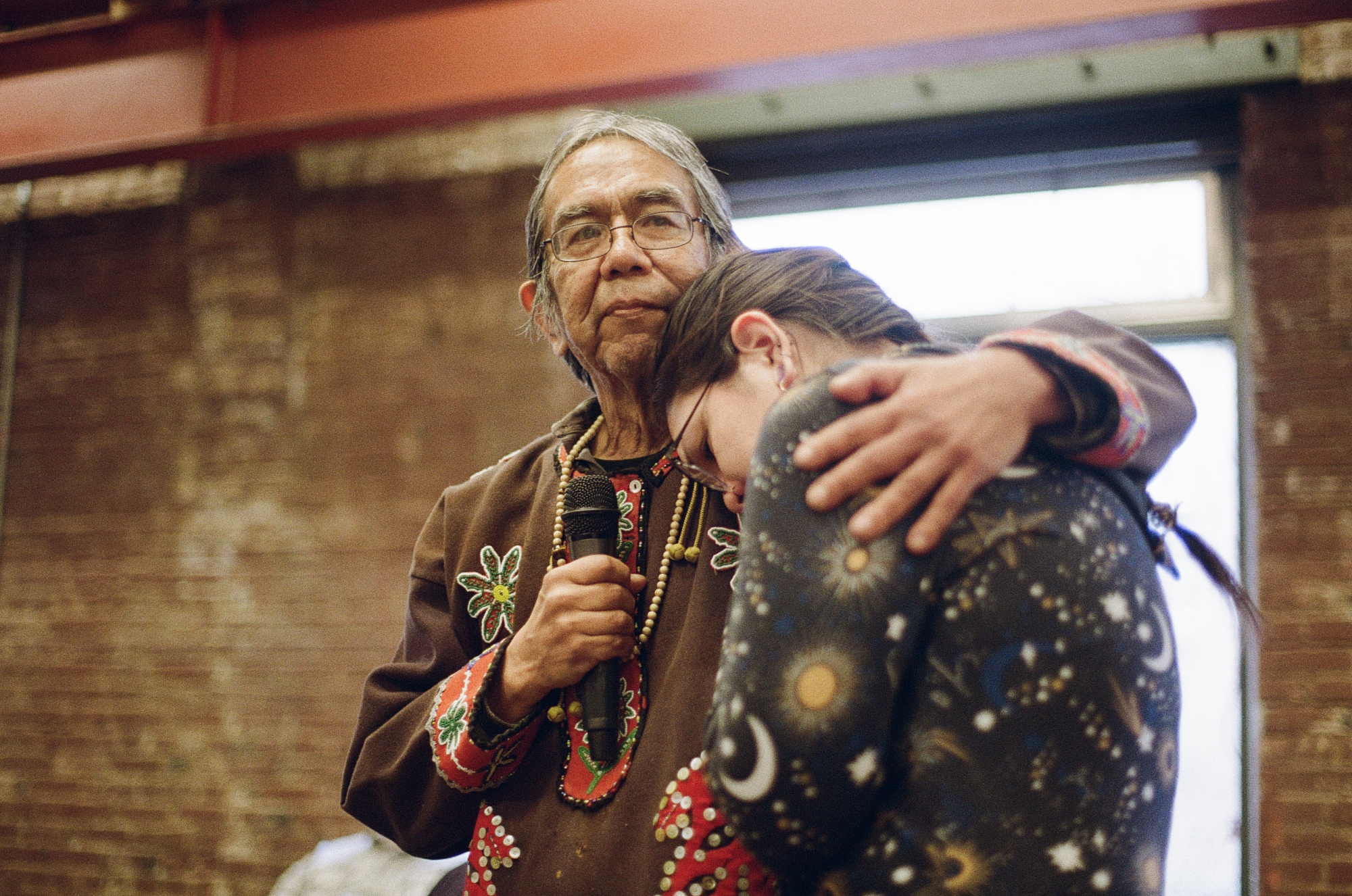
- Details
- By Jenna Kunze
PORTLAND, Ore.—The souls of more than 300 Alaska Native people who died throughout the 20th century at a psychiatric hospital more than 1,700 miles from their homes were released on their journey into the afterlife this month.
Alaska Native relatives and allies, seated around a circle in an all-day ceremony on March 9, donned regalia, prayed, sang songs, shared stories, and danced in honor of their ancestors who never came home.
Tlingit elder Bob Sam, 70, a lifelong repatriation expert and cemetery caretaker in Alaska, led the ceremony. Behind him stood a table full of children’s toys: teddy bears, marbles, and games were offered up as gifts for the young departed souls.
“In Alaska, as living people, we suffer racism, prejudice, hatred,” Sam told the attendees. “But many people don't know that our dead suffer more. Our dead are neglected and forgotten people."
Read the story at Native News Online.
More Stories Like This
Navajo Resources and Development Committee Issues Notice on Livestock Inspection RequirementsAmerican Prairie, Tribal Coalition Files Protest Over Rescinded Grazing Rights
Northern Cheyenne Push Back Against Trump Administration’s Effort to Alter Little Bighorn History
Florida Man Sentenced for Falsely Selling Imported Jewelry as Pueblo Indian–Made
Navajo Nation Declares State Of Emergency As Winter Storm Threatens Region
Help us defend tribal sovereignty.
At Native News Online, our mission is rooted in telling the stories that strengthen sovereignty and uplift Indigenous voices — not just at year’s end, but every single day.
Because of your generosity last year, we were able to keep our reporters on the ground in tribal communities, at national gatherings and in the halls of Congress — covering the issues that matter most to Indian Country: sovereignty, culture, education, health and economic opportunity.
That support sustained us through a tough year in 2025. Now, as we look to the year ahead, we need your help right now to ensure warrior journalism remains strong — reporting that defends tribal sovereignty, amplifies Native truth, and holds power accountable.
 The stakes couldn't be higher. Your support keeps Native voices heard, Native stories told and Native sovereignty defended.
The stakes couldn't be higher. Your support keeps Native voices heard, Native stories told and Native sovereignty defended.
Stand with Warrior Journalism today.
Levi Rickert (Potawatomi), Editor & Publisher

